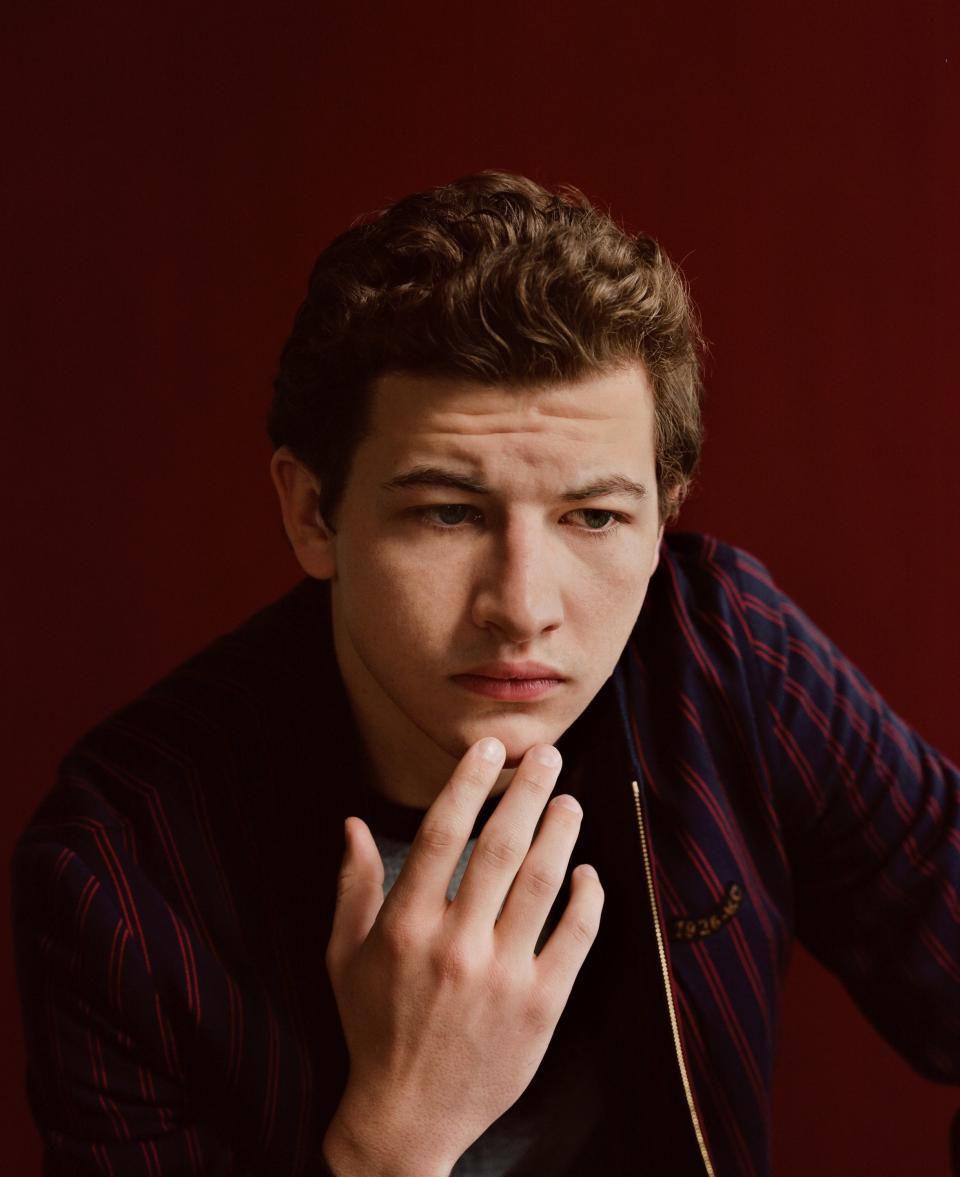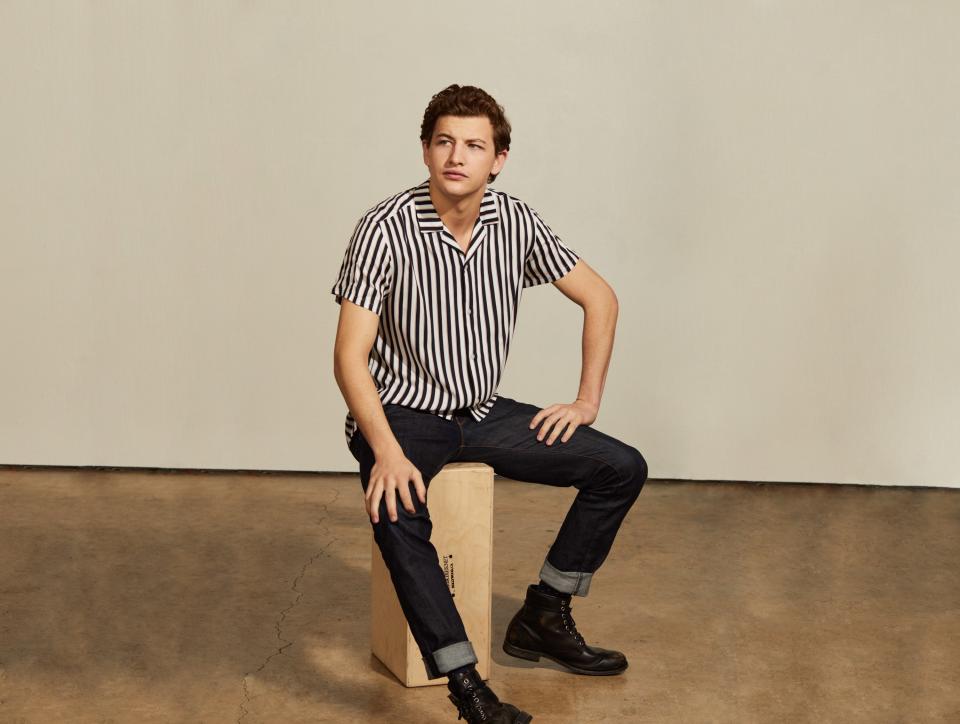Ready Player One 's Tye Sheridan Is From Another World
As a child in a middle-of-nowhere Texas town where neighbors didn’t bother to knock and kids played outside more than in, Tye Sheridan went hunting and fishing with his best friend, his dad. Sheridan plays guitar, and one of the first songs he plucked out was Lynyrd Skynyrd “Sweet Home Alabama.” He considers himself a Christian. He even dreamed of being a baseball player when he grew up. I’d bet money he says “yes, ma’am” to his mama.
Tye Sheridan’s blood doesn’t just run red--it runs red, white and blue. Where he’s from, Friday nights are for high school football games, Saturday night’s alright for a six-pack (i.e., fighting) and Sundays are for prayers and buffet lunches. He smells like apple pie, fresh air, and freedom. The boy’s a purebred American dream.
And soon, the 21-year-old with “hey girl” blue eyes, a yearbook smile, and a nose flecked with freckles will be a movie star. His career was launched in that most All-American way—he was discovered—and is proceeding apace with a save-the-day lead turn as Wade Watts in Ready Player One, the adaptation of Ernest Cline’s dystopian sci-fi book, directed by America’s Favorite Director, Steven Spielberg.
“I had such a pure upbringing—my childhood was a really happy time. There's a lot of love in my house. I have the greatest parents ever,” he says, tugging on the sleeves of his gray sweater as he talks protectively about his little sister Maddie and tucks into an alfresco brunch of eggs benedict and fresh-squeezed orange juice one recent balmy, late-winter Saturday in Los Angeles. The strong family ties show: Sheridan seems mature for his age, and he’s self-assured in that quiet, second-skin way that kids who were well-loved, but not spoiled, are.
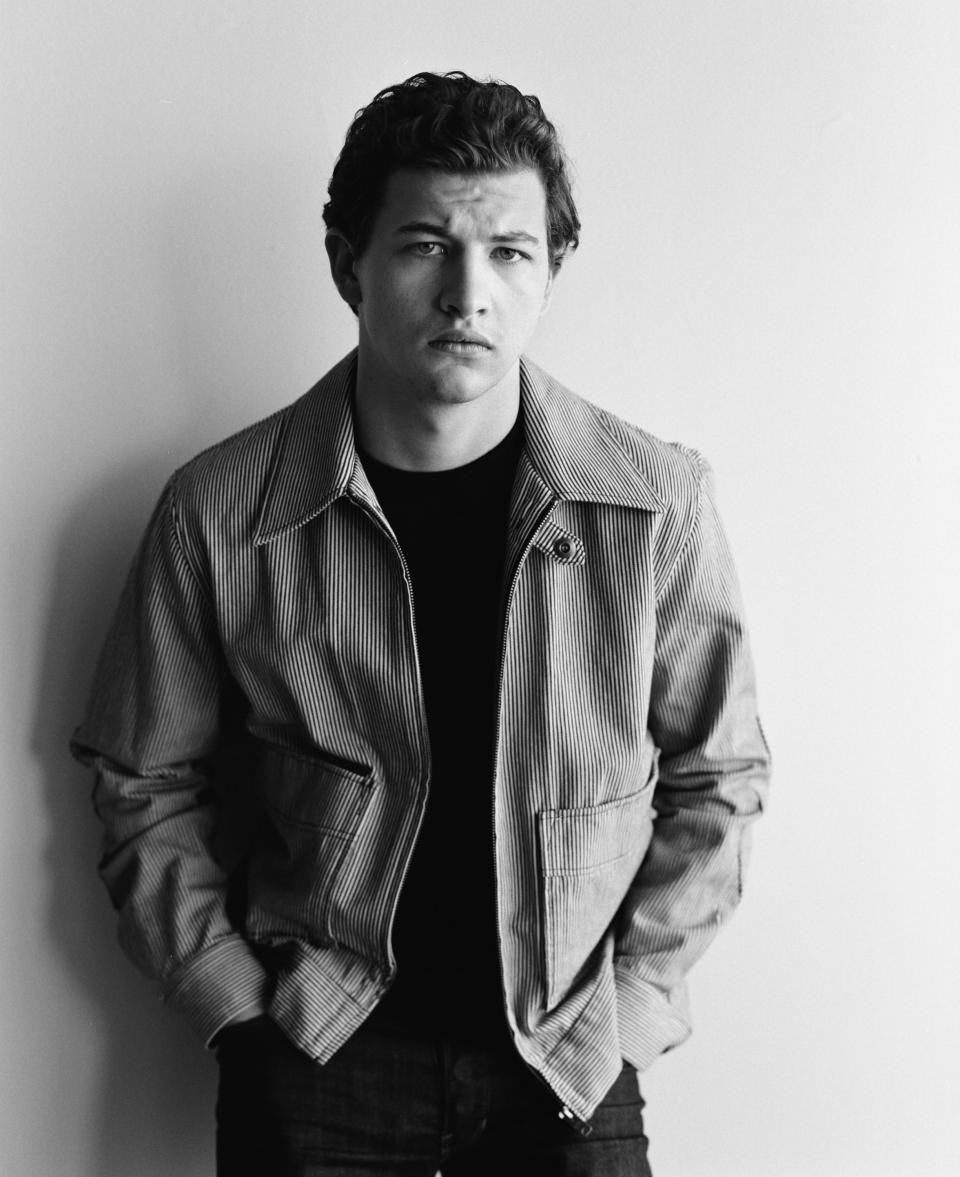
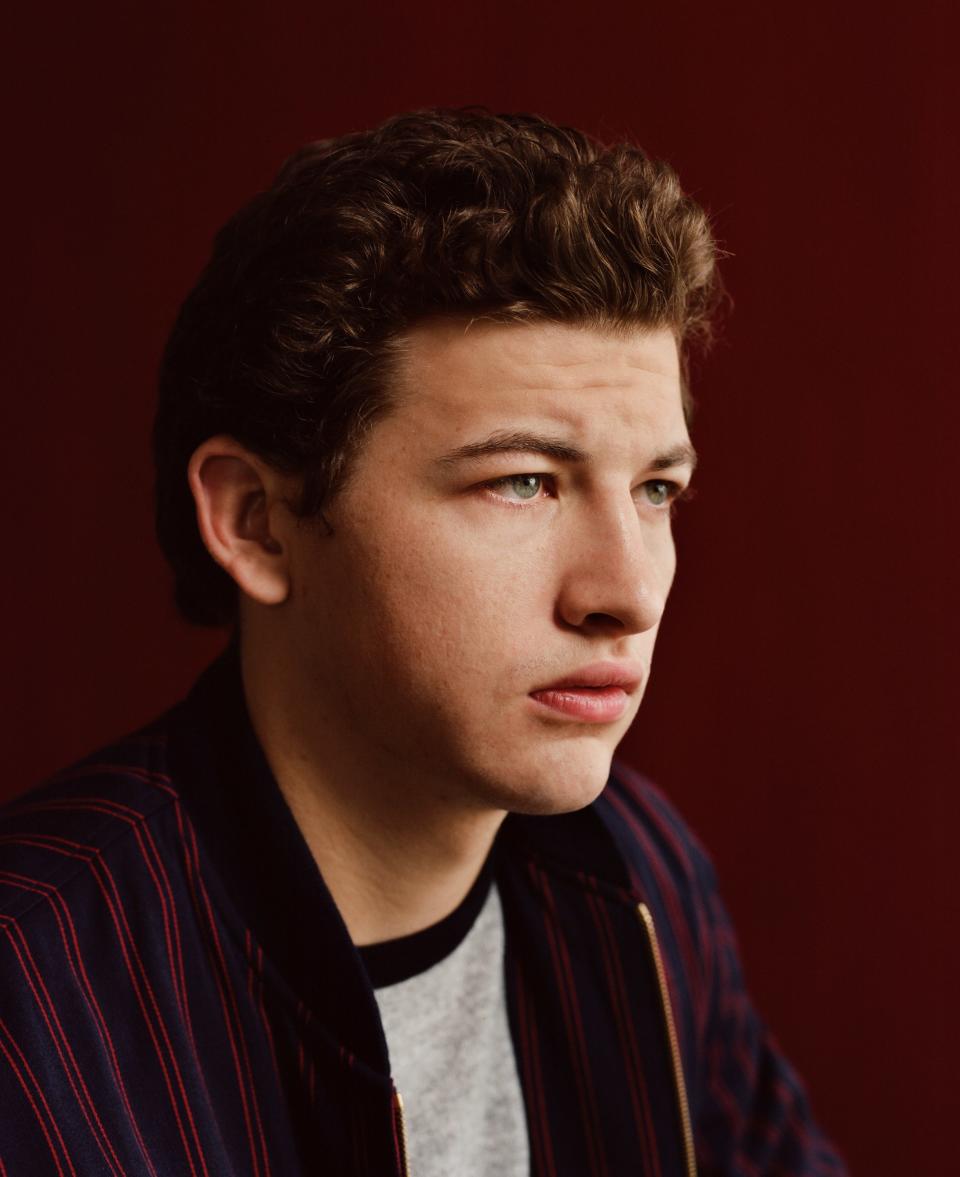
That’s a good thing, because ever since an 11-year-old Sheridan bested over 10,000 kids for a role in Terrence Malicks’s Best Picture nominee The Tree of Life, he’s been on a shortlist of up-and-coming ones-to-watch. Ready Player One could be the moment he blows up, big. In addition to plain ol’ good looks, Sheridan has two things you just can’t learn as an actor: the kind of energy the camera seeks out, and eyes that magnetize it. Smartly, he let his classy first film set the tone for his career. They haven’t all been sterling, and the requisite blockbuster franchise (in his case, X-Men) was added to his resume in 2016. Mostly, though, he’s notched commercially under-the-radar, critically well-regarded movies including Joe, The Stanford Prison Experiment, and Mud, for which he nabbed a Critics’ Choice Award nom.
Maybe even smarter was his decision to be a kid in between shoots instead of following so many other preteen Mickey Mouse Club members into Hollywoodland. “I always took [acting] seriously, but it was never a career until I was like 16 or 17,” he says. “I kept having a normal childhood, so it was always kind of a hobby. There was no pressure.”
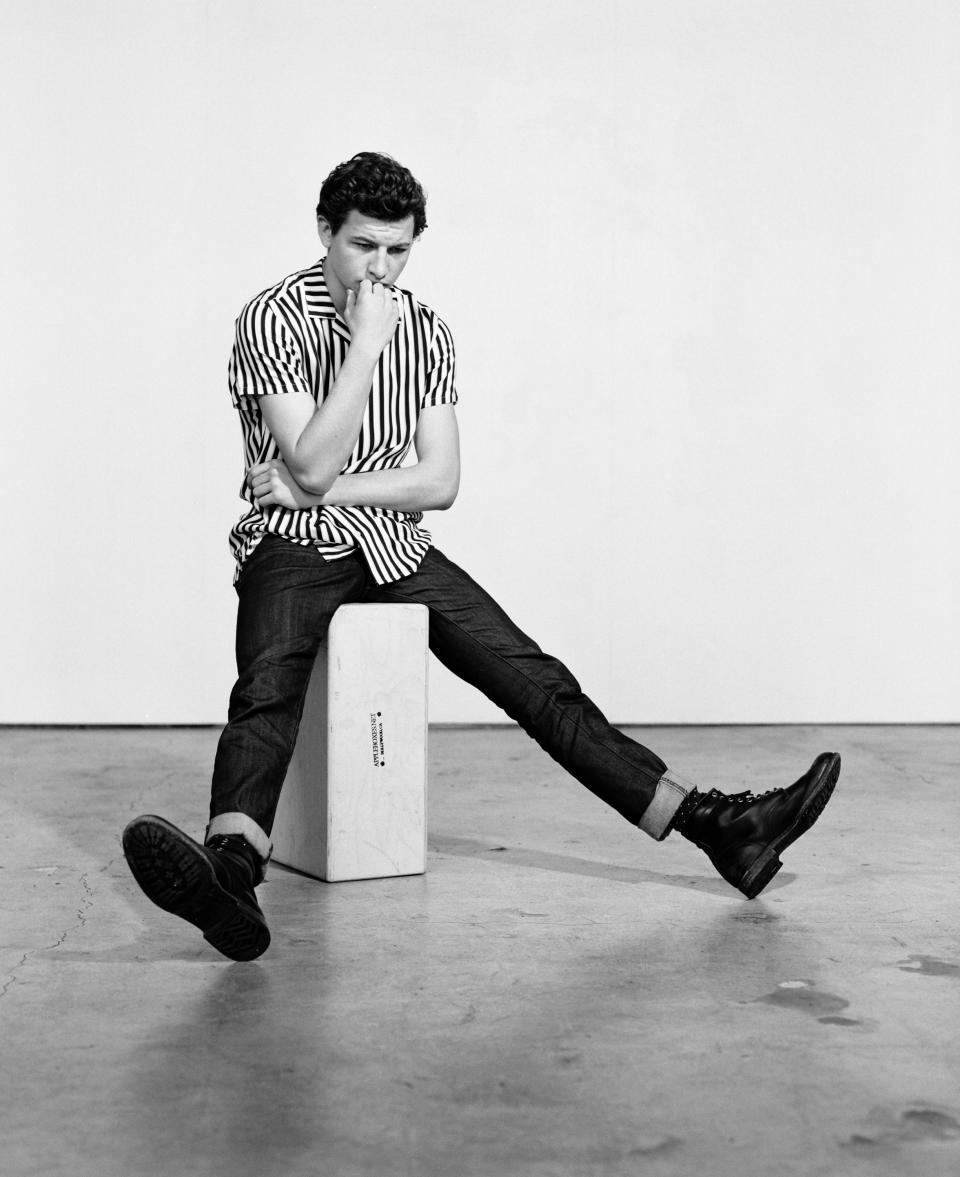
Sheridan’s parents were only 23 years old when their oldest was born in rural Elkhart, Texas, the kind of place where “everybody knows everybody. It’s super tiny. Nobody tells you when they're showing up. You want to talk to somebody, you just go over to their house and see if they're home,” he says. “If I could go back and relive it, I wouldn't change a thing.”
His dad worked for UPS and his mom, who owns a beauty shop, is into astrology. Salt-of-the-earth folks, they struck a balance between being pals and being parents, urged their kids to love the great outdoors and supported Tye’s dream of playing sports professionally.
“Thank God I didn’t have a game that Saturday I got an invitation in the mail,” he says of the letter he received after talent scouts for Terrence Malick’s new movie canvassed classrooms in Texas and Oklahoma. His parents asked their 10-year-old son if he wanted to audition, and for the next year, he kept getting callback after callback to play football or some such thing with 20 or so other kids while a camera watched. “To think that that's how I ended up here,” he says, shaking his head. “Wild.”
In fact, his childhood was so idyllic that prepping for Ready Player One might have required some serious stretching. After all, Wade Watts is his opposite, a lonely, withdrawn teen who’s desperate to escape a poverty-stricken real world as well as his personal reality—he lost both parents early and lives in the “stacks,” a Tetris of trailer homes, with his aunt and her abusive boyfriend—by disappearing into a virtual reality simulator called the OASIS.
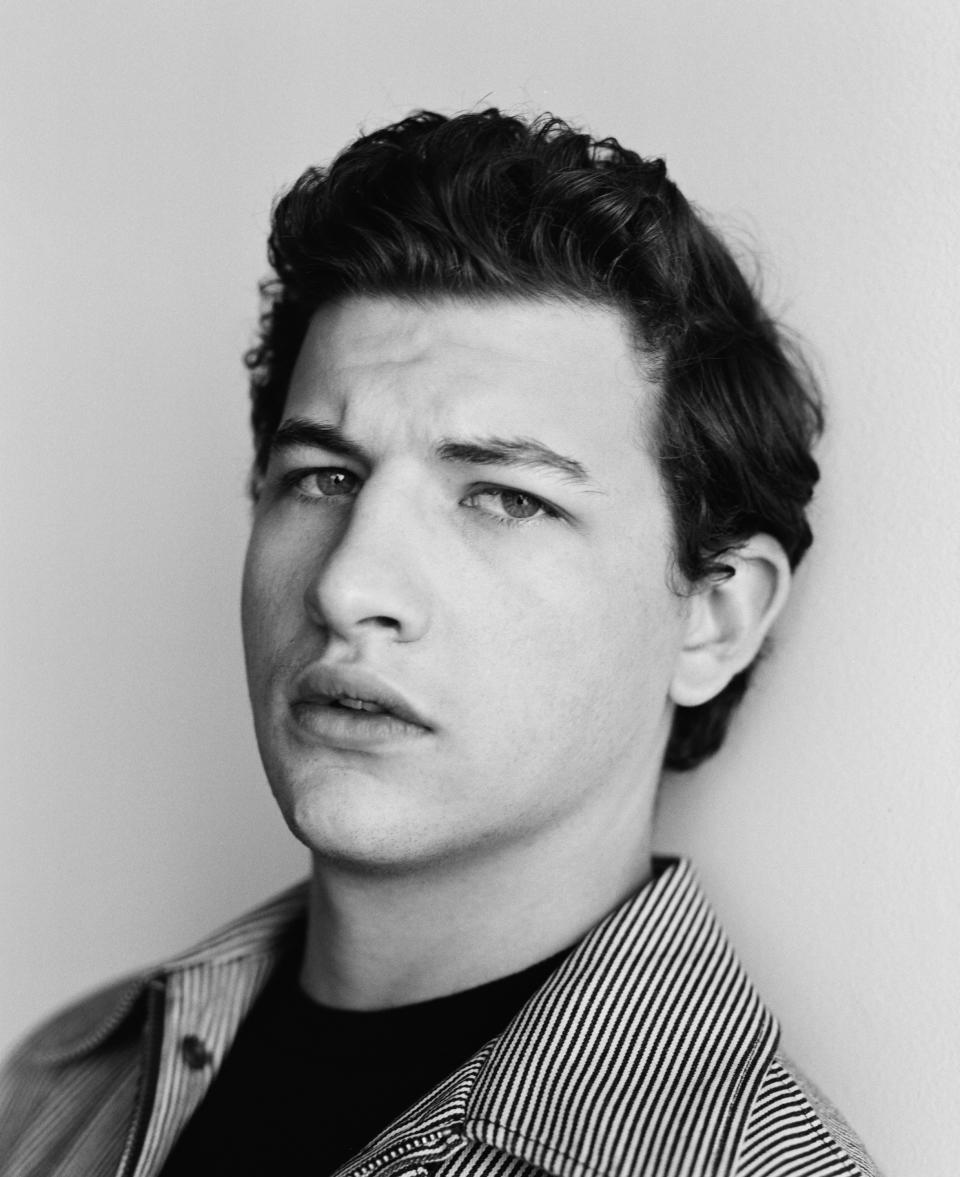
Turns out, it wasn’t so hard to identify with Wade. “L.A. can be a tough city, very lonely. A lot of people move here to pursue a dream, and that's understandable. But sometimes it's hard to find genuine friends,” he admits. “I always felt alienated, because I didn't have an education like most people have. I didn't grow up in a major city. This whole world was very strange to me and I was jealous of how people just took to it so naturally. But what I realize is that's what makes me me. Maybe they're jealous of my upbringing.”
Ready Player One looks exactly how you’d imagine Spielberg would imagine it—it opens with an action sequence stuffed with so much exploding, speeding stuff, your eyes feel like pinballs. For a big-budget movie whose not-so-subtle underlying theme is “get off the fucking Internet,” however, almost all the characters are miles funnier, more likeable and well-played in the VR than IRL. The exception is Sheridan (even if Wade’s avatar’s hair flops so gorgeously when the wind ruffles it that the urge to reach out and touch it is nearly irresistible). His eyes radiate such vulnerability and sustained hurt, you’re compelled to avert yours.
“It’s very large in scope and I think people are like, ‘Oh, it's a huge Spielberg platform movie,’ but at the core of it is a very human story, and I think that's what probably what attracted Steven,” he says.
If true, Spielberg chose the right actor to convey his message of people craving real, live, face-to-face interaction despite the fact that we’re closer than ever to existing in a video game—maybe more actively than he even realized at the time.
“I got rid of my Instagram and had a flip phone for two years,” Sheridan says. “I only started one after a friend told me someone was impersonating me.”
